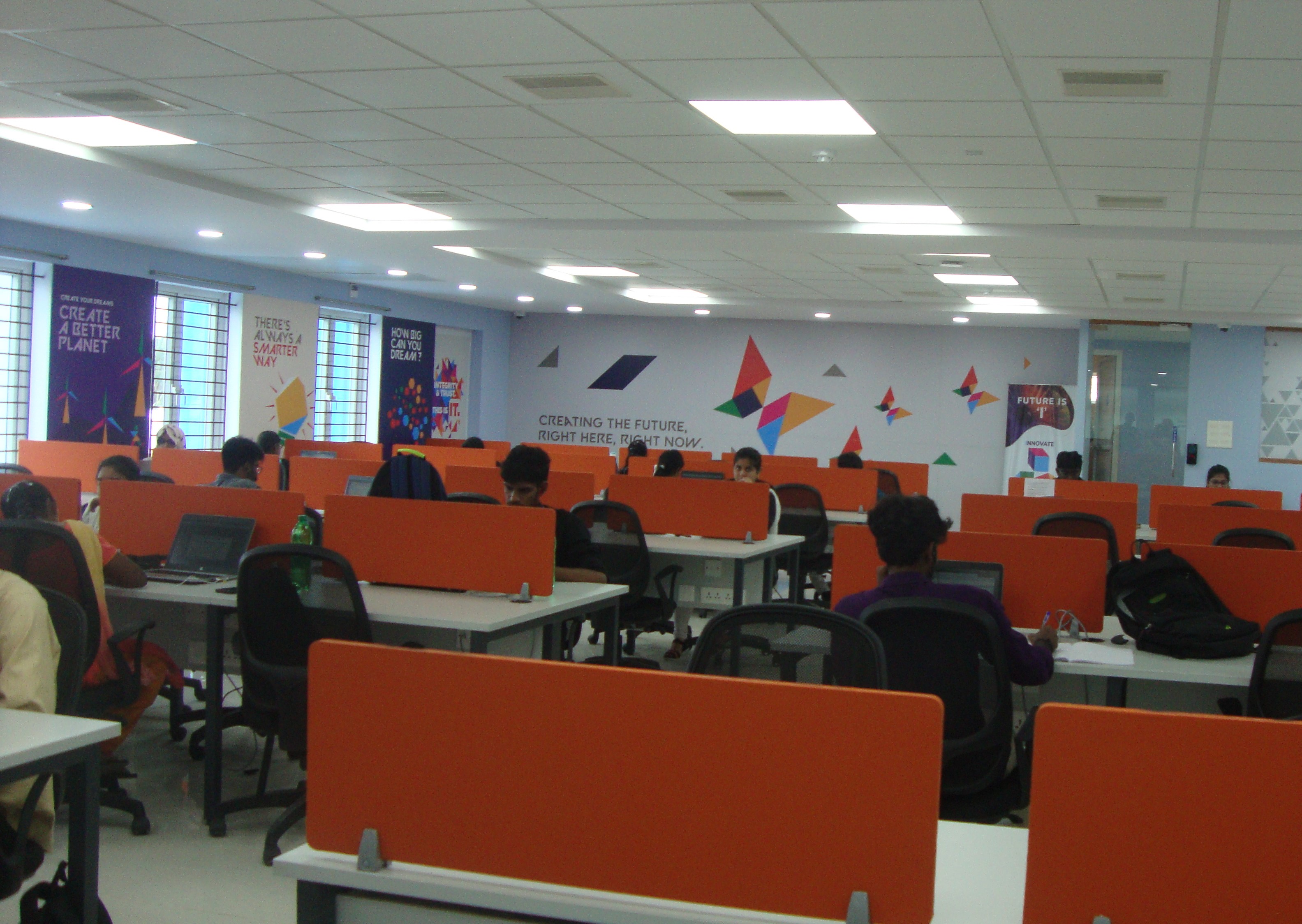How Covid-19 Proved an Opportunity for Youth in Small-Town India — Global Issues


PUNE, INDIA, FEBRUARY 8 (IPS) – While a 2017 study by the Federation of Indian Industries Jones Lang LaSalle India and WeWork noted the potential in the Indian coworking space segment, COVID-19 has caused people to move to co-working spaces closer to home.
study, The Future of Work – The Co-working Revolutionn, has seen the potential market size of the coworking segment at 12-16 million, predicting an investment of $400 million in 2018, generating 40-50% growth in 2017.
This is driven by India’s emerging startups (as India is now the world’s largest startup hub) and India’s freelance workforce (with India having a 2nd largest freelancer in the world, more than 15 million professionals).
In 2020, India was hit by a pandemic. Due to forced closure of operations, many companies face heavy losses. When resuming operations, they must operate at 50% capacity (according to government directives), which means reducing operations. Layoffs and pay cuts have been invoked to survive. In addition to production activities, the presence of many employees is considered unnecessary in the office. This ushered in a work-from-home culture.
Wage cuts and work-from-home options have prompted many employees to leave expensive urban centers and return home to smaller towns and cities. Some people facing layoffs and pay cuts have chosen to launch startups. This has added impetus to the demand for commercial space in small towns and Tier 2 or Tier 3 cities for coworking spaces.
Over the past few decades, small-town India has seen a tremendous growth in professional education, with a number of prestigious technical and management institutions nurturing outstanding students. However, conservative values continue to dominate here, unlike cosmopolitan urban centers. Since many young people are first-generation professionals and come from rural families with modest incomes, moving to an urban city can be a major financial strain for newer people. Internships are also hard to come by for a recent college graduate.
As a result, many people remain confined to low-paying jobs in their cities and end up frustrated in the long run.
This is where the pandemic has helped.
Take the case of the pilgrimage city of Tirunelveli in the state of Tamil Nadu at the southern tip of peninsular India. Adjacent to the port town of Tuticorin, it has many technical, management and science colleges. Tirunelveli is near the town of Nagercoil in Kanyakumari district, the southernmost district of mainland India and boasts a high literacy rate. However, students from these sections always have to move to Chennai or Bangalore to get a suitable job or internship.
Virudhunagar’s Ronaldsen Solomon, however, got lucky. As a final year Engineering student at Francis Xavier University in Tirunelveli, he interned at an IT infrastructure company with local offices in a co-working space.
“I am gaining practical experience, even as I take lectures at university for my degree,” he told me about his work at 3i Infotech.
For Jenima Hyrun of the town of Chermahadevi in the Tirunelveli district, finding a job was a difficult task, despite her degree in Computer Science, due to the objections of her conservative Muslim family.
“I received a job offer from Chennai. But although my father always encouraged me, my aunts and others did not allow it. As part of a common family, living alone in a metropolitan city is unthinkable for me.”
When 3i Infotech acquired the dedicated facility under Mikro Grafeio, Hyrun’s prayers for a suitable facility were answered. She easily makes the short commute to work from home by public transport.
When Vijay Roshan obtained his Bachelor’s degree in Computer Applications from MDT Hindu College in Tirunelveli, his poor English made him not confident in himself. As the son of a farmer, he also feels uncertain about moving to a metropolitan city. However, when the same IT infrastructure company opened its offices through a dedicated space, Roshan was immediately recruited as a promising new employee.
For those who don’t want to travel long distances to work, affordable housing is not too hard to come by in Tier 2 and Tier 3 cities.
Take the case of university friends Vignesh M and Ashwin SC from Thiruvananthapuram in the adjoining state of Kerala, who completed their degrees at Nurul Islam Institute of Higher Education. Renting a house in Tirunelveli is much cheaper than moving them to urban centers like Bangalore or Chennai.
“We paid Rs 1500 per person, sharing a room with three colleagues in a house nearby. It’s just a 15-minute walk from our workplace, saving us time and money on commuting,” said Ashwin.
The same is true of Shiny Evangeline and Abarnadevi from the neighboring district of Nagercoil (in Tamil Nadu), Thenkasi’s Tamilselvi and Kanyakumari’s Sahanya Wilson. This ensures better take-home pay for these new students who will have to spend up to Rs 10,000 for a co-living space in an urban city. Shared rentals also foster better camaraderie among colleagues, which is essential for better teamwork on the project.
When blue chip companies move to Tier 2 and Tier 3 cities, it could mean a lot for people with special powers like V Saumya, who has struggled to become one. Today’s HR Manager. The victim of an accident as an infant, Saumya had to rely on her parents’ help throughout her high school and college years, fighting despite her physical disability to complete her career. Master of Business Administration degree. Her proximity to work in Tirunelveli got her a job, and she also works for 3i Infotech and appreciates the facilities at Mikro Grafeio.
“For the first time, I was greeted by a handicap-friendly toilet that I could use.”
The world has opened up for Saumya, who now looks forward to traveling far and wide, even as she moves up and down to work in her motorized wheelchair.
While Mikro Grafeio intends to eventually develop co-working spaces for individuals in small towns, it is currently limited to operating zones reserved for companies. Chief Growth Officer Sundar Rajan told IPS, “We are still exploring the market; In small towns, the concept has yet to catch on. However, Mikro Grafeio operates co-working spaces in cafes and breweries in cities such as Coimbatore, Pondicherry and Bangalore, and has a Memorandum of Understanding with Café Coffee Day in Tamil Nadu, Kerala and Karnataka.”
It has several clients, 3i Infotech, CIT Services, Sotheby’s International Realty and others expected to follow suit.
Indiqube followed a similar model by handing over dedicated spaces and co-working offices. According to Rishi Das, co-founder of Indiqube, 85% of their customers have their own space, while 15% are in the co-working segment.
Report of the UN IPS Office
Follow @IPSNewsUNBureau
Follow IPS News UN Office on Instagram
© Inter Press Service (2023) — All rights reservedOrigin: Inter Press Service




